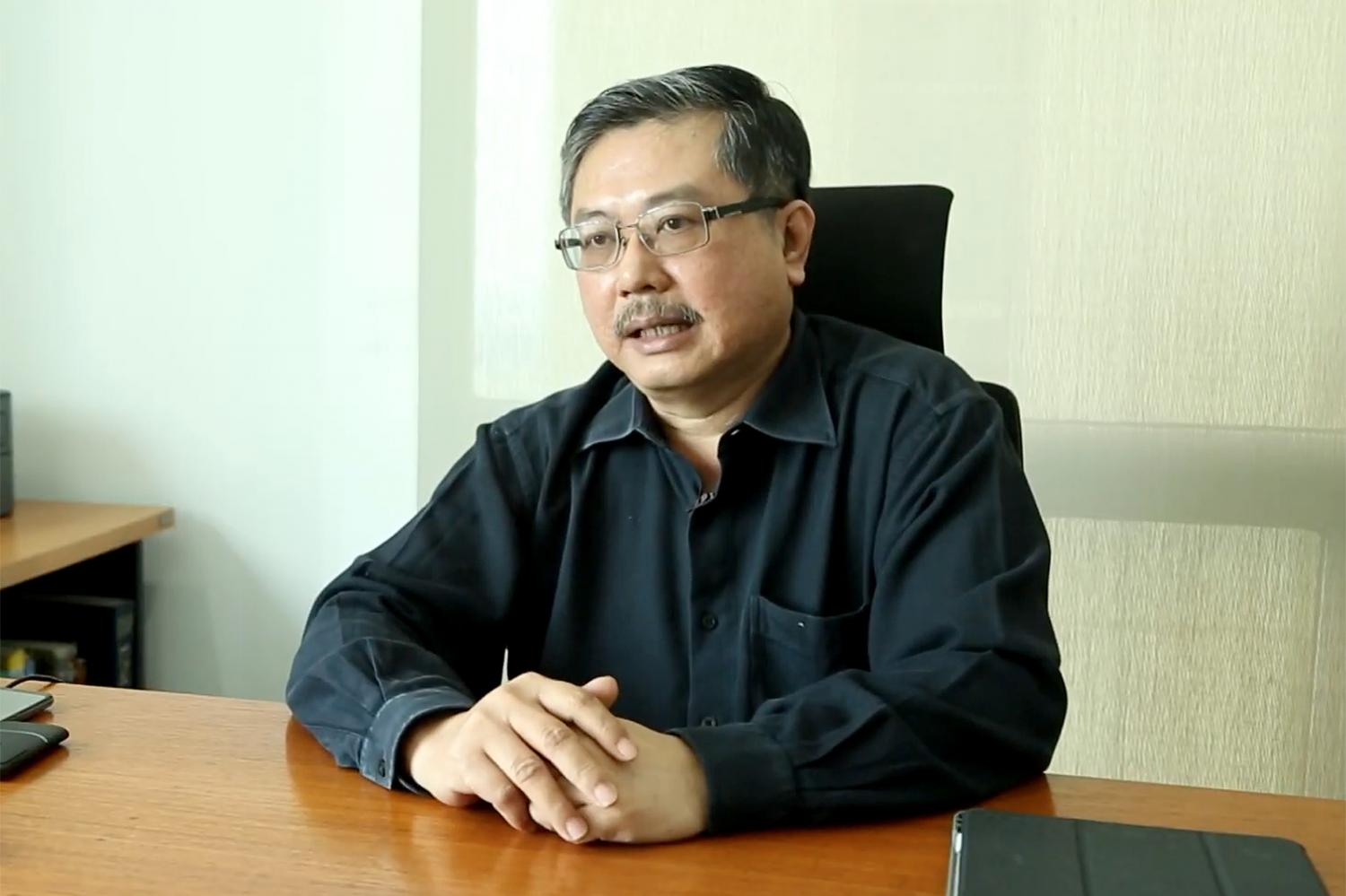Prime Minister Anutin Charnvirakul in parliament on Sept 29 when he announced his policy platform. Chanat Katanyu
A censure motion, feared as a potential death warrant for Prime Minister Anutin Charnvirakul’s government, could accelerate an early dissolution of the House of Representatives before the tentative deadline set under the memorandum of agreement (MoA) between the ruling Bhumjaithai Party (BJT) and the opposition People’s Party (PP).
With funding, personnel, and networks already in place, analysts believe BJT is the most election-ready party in the current political landscape.
The Bangkok Post talked to political scientists and veteran politicians to get their insights and perspectives about the possibility of Mr Anutin announcing an early dissolution of the House bef…
Prime Minister Anutin Charnvirakul in parliament on Sept 29 when he announced his policy platform. Chanat Katanyu
A censure motion, feared as a potential death warrant for Prime Minister Anutin Charnvirakul’s government, could accelerate an early dissolution of the House of Representatives before the tentative deadline set under the memorandum of agreement (MoA) between the ruling Bhumjaithai Party (BJT) and the opposition People’s Party (PP).
With funding, personnel, and networks already in place, analysts believe BJT is the most election-ready party in the current political landscape.
The Bangkok Post talked to political scientists and veteran politicians to get their insights and perspectives about the possibility of Mr Anutin announcing an early dissolution of the House before his given deadline.
Political calculus
Under the MoA, the BJT-led minority government is required to initiate the process of drafting a new constitution and dissolve the House within four months.
Some observers now view early dissolution as a likely scenario – especially if the opposition Pheu Thai Party decides to file a censure motion during the next parliamentary session next month. Such a move could prompt Mr Anutin to pre-emptively dissolve parliament to avoid his potential embarrassment or political fallout.
Stithorn Thananithichot, a political scientist from Chulalongkorn University, said the atmosphere following the passing of Her Majesty Queen Sirikit The Queen Mother has subdued partisan tensions, giving the government some breathing space.
“Political polarisation has eased somewhat due to the royal ceremonies and a revived nationalist sentiment,” he said.
“However, if Pheu Thai exposes serious weaknesses or scandals involving BJT – especially links to corruption or scam networks – the government might feel pressured to opt for House dissolution to avoid a damaging debate.”
He added that dissolving the House according to the MoA’s schedule would also allow Mr Anutin to claim he honoured his commitments. “That timing is the most elegant solution for BJT,” he said. “Delaying beyond the MoA would be difficult, while dissolving earlier would only happen if a censure motion poses a serious threat [to the BJT-led administration].”
Assessing readiness
Pheu Thai’s internal divisions complicate its decision-making. Some within the party advocate filing a censure motion to showcase government failures and regain momentum.
Others warn that such a move could backfire by triggering an early dissolution that catches the opposition unprepared.
Mr Stithorn observed that “Pheu Thai must weigh its timing carefully. If they push too hard, they might inadvertently help BJT gain an advantage. If they wait too long, they lose the narrative.”
Phichai Ratnatilaka Na Bhuket, director of the Politics and Development Strategy Programme at the National Institute of Development Administration (Nida), also sees the censure motion as the key variable.
“If Pheu Thai files or even signals a no-confidence motion in the upcoming session, Mr Anutin might decide to dissolve the House early to avoid it,” he said. “Once the motion is formally accepted, it puts the government in a dangerously vulnerable position.‘’
Mr Phichai identified two main factors influencing the timing of dissolution: the opposition’s moves and the government’s own assessment of its popularity.
“If the administration believes its popularity has peaked and will decline in coming months, it makes strategic sense to call an election while momentum is still high,” he said.
He believes BJT is already in peak readiness. “By this month [November], the party’s structure, financial resources, and network of local powerbrokers will be fully mobilised,” he said.
“They have built extensive patronage systems and established contacts with influential political families – the ‘big houses’ – in every region. With state machinery under their control, their organisational strength will be hard to match.”
Former Democrat Party MP Nipit Intharasombat echoed this assessment, saying BJT is the most prepared for an election – both financially and organisationally.
“They have the funding, the networks, and the confidence they can return as a leading party,” Mr Nipit said. “In fact, the reshuffling of senior civil servants – notably in the powerful Interior Ministry – suggests a strategic alignment ahead of the polls.”
Mr Nipit said the four-month MoA window is the maximum duration the government can maintain. “If they’ve already accomplished the key MoA, there’s no point in risking a no-confidence debate,” he said. “Once Pheu Thai files the motion, BJT’s best option is to dissolve the House immediately.”
“They won’t risk entering a censure debate,” Mr Nipit said. “The opposition will surely hand BJT a no confidence vote, and if PP abstains or sides against them, it could trigger a full-blown crisis. Dissolving early prevents that and allows BJT to dictate the electoral timing.”
Balancing act
Despite speculation, most analysts agree BJT will seek to time the dissolution for maximum political gain while maintaining the appearance of fulfilling its MoA commitments. A dissolution around late next month or early January would fit both criteria – appearing compliant while still catching rivals off guard.
Mr Stithorn, meanwhile, added that Mr Anutin will want to avoid appearing opportunistic. “If he dissolves too soon, it could leave the impression that he was running away from accountability,” he said. “But if he waits too long, the momentum could fade, and opponents could regroup.”
Another crucial consideration is the coalition dynamic. PP, which has maintained an uneasy alliance with BJT, might reconsider its support if public opinion turns or if allegations of corruption gain traction. “If damaging evidence emerges during the debate, PP could claim the full legitimacy to distance itself,” Mr Stithorn said. “That could seal the government’s fate.”
However, an early vote carries risks. Economic conditions generally remain fragile, despite the Khon La Khrueng Plus co-payment scheme being warmly welcomed, unresolved controversies over call centre scams remain. Moreover, public scepticism toward elite-driven politics could blunt BJT’s popular appeal in the longer term.
November watch
All eyes are now on this month, labelled by analysts as the critical month for the government. Before November is out, the government will have completed key preparatory steps, while opposition parties finalise their strategies. If Pheu Thai moves ahead with a no-confidence motion, the countdown to House dissolution could begin almost immediately.
“Everything depends on whether Pheu Thai blinks first,” Mr Phichai summarised. “If they do so much as signal a censure move, Mr Anutin will most probably go ahead with disbanding the House. If not, he’ll wait until January and claim to have honoured the MoA. Either way, BJT wins by controlling the tempo.”
Mr Nipit, meanwhile, offered a more pragmatic view: “They [BJT] are ready. Once their internal polling and provincial networks confirm readiness, they’ll pull the trigger. It’s a simple political equation – go early when you’re strong.”
For BJT, early dissolution appears increasingly attractive as it neutralises parliamentary risks. Moreover, public scepticism toward elite-driven politics could blunt BJT’s populist messaging
Whether the premier chooses to act pre-emptively or wait until January, one thing is clear: the countdown to Thailand’s next election has begun, and the censure motion may be the spark that sets race in motion, the analysts said.

Stithorn: ‘Tragedy gave govt time’

Phichai: ‘Censure is the key variable’

Nipit: ‘BJT ready for poll’